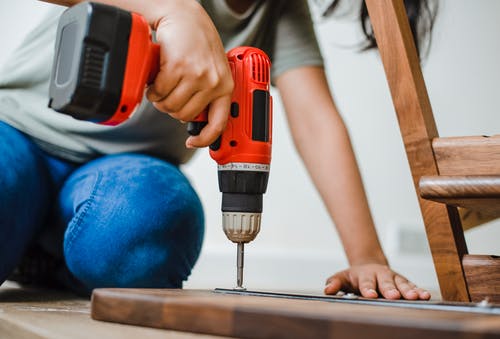In the fast-paced world of veterinary medicine, the difference between successful treatment and a disappointing outcome often hinges on the timely and accurate diagnosis of a pet’s condition. To achieve these results, veterinarians are seeking to improve the diagnostic services offered in their practices, which has led to the rise of in-house veterinary labs. But what exactly are in-house veterinary labs, and why are they becoming so popular? In this article, we’ll delve deeper into the advantages that in-house vet labs provide for practitioners and pet owners alike.
The Benefits of In-House Veterinary Laboratories
Faster Diagnoses
Detecting and treating a pet’s condition as quickly as possible is critical in all aspects of veterinary medicine. In-house diagnostic labs provide veterinarians with near-instant access to test results, allowing them to diagnose and treat a patient more efficiently than waiting for results from an external laboratory. This speedy turnaround time can not only improve the pet’s prognosis but also provide the pet owner with much-needed peace of mind. For example, let’s consider a dog with anemia who has been losing blood at a rapid rate. By running the bloodwork on-site, the veterinarian can determine the severity and cause of the anemia within minutes, allowing them to expediently address the pet’s needs and improve their overall well-being.
Improved Accuracy
Developing a successful treatment plan starts with receiving accurate diagnostic results. In-house laboratories give veterinarians total control over sample handling and processing, resulting in fewer errors. These in-clinic labs also often utilize dedicated veterinary diagnostic equipment, specific for the needs and complexities of animal testing. This exclusivity ensures more accurate results and contributes to overall improved patient care, as it mitigates the risks associated with sample handling and shipping to external laboratories.
Enhanced Patient Care
Pet owners want to know their veterinarians are doing all they can to care for their beloved animals. By offering real-time testing and results in-house, veterinarians can make immediate treatment decisions and adjustments without needing to send out for tests and await lab results. Practitioners can also communicate test findings directly with pet owners, strengthening their relationship and building trust. This personalized care often extends to follow-up appointments, where the veterinarian can directly reference the pet’s previous in-house diagnostics to monitor progress and adjust care recommendations accordingly.
In-House Diagnostic Technologies
In-House Blood Testing
In-house blood testing is one of the cornerstones of a well-rounded veterinary lab. Within minutes, blood chemistry analyzers can determine a pet’s organ function and detect potential imbalances or illnesses. Hematology analyzers count and differentiate blood cells, while coagulation analyzers evaluate a pet’s clotting ability. These types of immediate diagnostic tools can be especially beneficial in emergency situations, for instance, where a pet requires rapid surgery or treatment and time is of the essence.
Point-of-Care Testing
In-house diagnostics also extend to point-of-care testing, such as urinalysis, fecal analysis, and cytology. These tests provide crucial information on a pet’s overall health status and can identify potential problems that may not be immediately evident in bloodwork or imaging. For example, fecal tests can assess parasites and infections in the digestive system, while cytology can diagnose certain skin and ear conditions.
Pet Alternative Medicine
While discussing diagnostic technologies, it’s essential to note that some pet owners may be interested in exploring alternative veterinary medicine options. An alternative vet could incorporate holistic, herbal, or homeopathic options alongside traditional treatments. In many cases, these alternative methodologies can be integrated with in-house diagnostics, providing a comprehensive approach to animal care.
Veterinary Surgery
In-house diagnostic labs can also play a vital role in preparing for and performing veterinary surgical procedures. For example, the importance of timely and accurate diagnostic results cannot be overstated in evaluating the risk and prognosis for patients requiring surgery in specialized practices, such as dog surgeons in Cave Creek, AZ, where quick decision-making is crucial to a successful surgery outcome.
Advanced Diagnostic Technologies
Veterinary medicine continues to evolve with the advancement of technology, and in-house labs are no exception. Practices that invest in state-of-the-art equipment, such as digital radiography, ultrasound, and endoscopy, can provide more extensive diagnostic capabilities right on the premises.
Implementation Considerations for In-House Veterinary Labs
While the benefits of in-house labs are numerous, veterinary clinics must consider factors like equipment investment and maintenance, staff training and expertise, and the required physical space before committing to an in-clinic laboratory. These considerations should be evaluated in the context of expected patient volume and the practice’s ability to support and maintain an in-house lab.
In-House Vet Lab and Pet Pharmacy
Another consideration to enhance in-house services is the addition of a pet pharmacy that can provide prescriptions alongside diagnostics, creating a one-stop-shop for pet care. Veterinary clinics, such as those with a veterinary pharmacy in Cave Creek, AZ, can significantly improve the convenience and efficiency of a pet owner’s experience.
The Future of In-House Veterinary Labs
The rise of in-house veterinary labs speaks to the industry’s ongoing commitment to improve patient care and advance veterinary medicine. As diagnostic technology continues to evolve and become more accessible for veterinary practitioners, we can expect an even more profound shift towards in-house diagnostics in the years to come.
Conclusion
In-house veterinary labs not only provide faster, more accurate diagnoses, but they also improve overall patient care and strengthen the bond between veterinarians and pet owners. By embracing the advantages of in-house vet labs and remaining up-to-date on industry trends and technological advancements, veterinary practices can provide exceptional care for their patients and ensure a brighter future for animal health.



